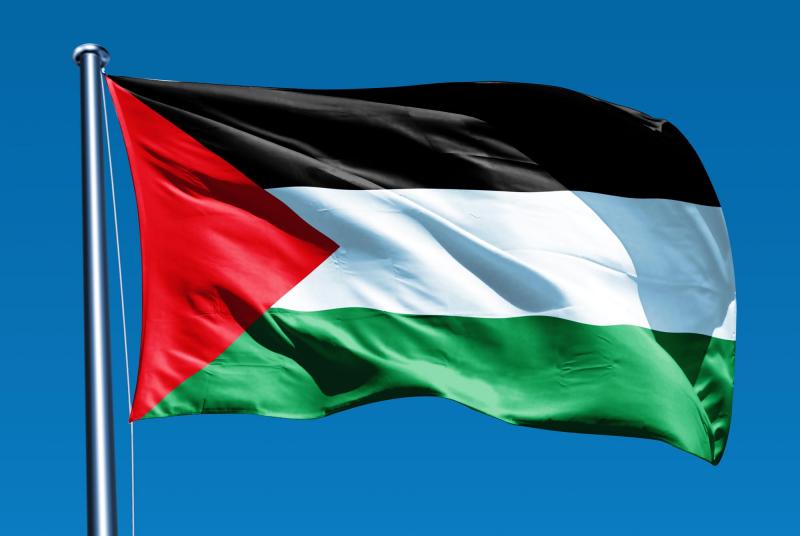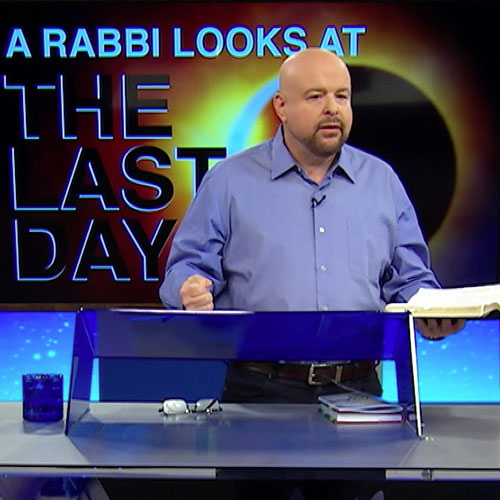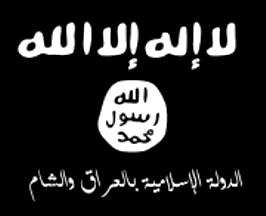Daniah Greenberg | Messianic Jewish Family Bible



After Hamas launched 150 rockets and mortar shells at Israeli communities last week, Israel actively defended its citizens by striking more than 140 Hamas military targets, including terrorist training compounds, weapons manufacturing facilities, storage warehouses and rocket launch sites.
It was the largest exchange of fire since the war between Israel and Gaza in 2014.
Israeli spokespersons warned that war between Israel and Gaza was close, telling southern Israel residents to remain near bomb shelters during the weekend. A military spokesman said the government was prepared to evacuate communities if war broke out.
“Since the start of the ‘March of Return,’ Hamas has claimed 168 dead, another 4,348 wounded and dozens of terror infrastructures destroyed,” Defense Minister Avigdor Liberman told The Jerusalem Post last week. “The question of the next round of fighting is not ‘whether’ but ‘when.’ I’m sure we’ll do what is needed.”
Ten years of Israel’s sanctions and blockades have deteriorated humanitarian conditions in the Gaza strip. Gazans are protesting, and the world blames Hamas.
The Washington Post reported that, “The 140 square-mile strip of land, under partial blockade by Israel for more than a decade, suffers from chronic unemployment and a lack of infrastructure and services.”
Hamas’ desire to terrorize Israel “and thus be relevant, and the fact that Iran is also funding Hamas and wants it to be a thorn in Israel’s side,” is part of a larger struggle, wrote Seth J. Frantzman in The Jerusalem Post on Friday. Frantzman, a fellow at the Jerusalem Institute for Market Studies, added, “Each side seeks some strategic gain from Israel, Hamas and Gaza.”

Hamas’ escalation appears to be a carefully orchestrated strategy to pull Israel into nearly constant fighting. But this scheme failed in Hamas’ goal to turn the world against its rival, Israel.
March: Following a bungled assassination attempt against the Palestinian Authority (PA) prime minister and the PA reducing aid to Hamas, Hamas launched weekly “Great March of Return” riots against Israel’s security fence. In these protests, Hamas used civilians to hide their activity. The protests resulted in hundreds of Gazans dead and thousands more injured.
April–June: Hamas ratcheted up tensions by firing rockets and mortars into Israeli communities and using incendiary kites to burn thousands of acres of farmland and national parks.
July–August: Amid many warnings of impending war by Israel, Hamas continued to escalate its attacks against Israeli communities and soldiers. U.S. President Donald Trump’s son-in-law and senior advisor on the Middle East co-authored an op-ed in The Washington Post suggesting the best path to peace would be an end to U.N. humanitarian aid to Hamas.
These events culminated in last week’s attack by Hamas and Israel’s defensive strikes.
As part of a cease-fire agreement, Israel demands that Hamas stop its rocket launches, sniper fire and launch of incendiary kites and balloons over the border.
The Washington Post reported that Hamas and Israel have opened channels for indirect talks on prisoner exchanges, although the talks are stalled.
“We’ve said all along that, in order to reach a comprehensive peace agreement, we need to somehow figure out how to resolve Gaza, not just from a humanitarian level,” an anonymous senior Trump administration official told The Washington Post. “You have 2 million Gazans suffering there because of Hamas.”
Ynet News reported that Prime Minister Benjamin Netanyahu met with his cabinet on Sunday.
“We are in the midst of a campaign against terror in Gaza,” Netanyahu said at the meeting. “It entails an exchange of blows; it will not end in one strike.
“Our demand is clear,” he continued. “Our objective is to restore the quiet for residents of the south and for the area adjacent to the Gaza Strip. This goal will be achieved in full.”
Wisdom for those taking part in peace talks
God to intervene against those who use violence to promote their anti-Israel agendas

Nothing is too big for God.
Nothing is too complicated, crooked or broken for Him to remedy.
He is El Shaddai – The God Almighty.
In a world that often seems wild and unchecked, it’s reassuring to know that the all-powerful, all-knowing God is in control. And as majestic as He is, He knows your name and is interested in your every care. He is able to provide for your needs and work everything together for your good.
Faith grows by hearing His Word.
Expand your peace and enlarge your faith in God’s all-sufficient care. Receive encouragement and strength from proclaiming key Scriptures magnifying His astounding power, goodness, and provision.
With El Shaddai – The God Almighty, you’ll learn:
With the accompanying CD, you’ll listen to and easily pick up Hebrew pronunciation. You’ll soon be able to confess the Hebrew Scriptures on your own.
Beautiful photographs accompany each Scripture, creating an inspiring resource for the coffee table or your study desk. Confess God’s Word and watch your faith grow.
Between the moving of America’s embassy to Jerusalem (marking an important recognition of Jerusalem as Israel’s capital) and the 70th anniversary of Israel’s founding, the joy seemed apparent everywhere.
For Orthodox Jews, secular Israelis and Messianic Believers in Yeshua (Jesus) – it seemed everyone was rejoicing over these historic events.
But there was perhaps one exception. One group in Israel finds it hard to enter into the spirit of celebration: the remaining survivors of the Holocaust.
I’ve written often about the plight of these special people, their number now dwindling. All, of course, are elderly, and so suffer afflictions common to all older people – declining health, poverty and loneliness.
The survivors continue to be haunted by memories of the horrors they experienced in their youth under the Nazi regime. Survivors like Clara.
In 1940, when Clara was only 3 years old, the Nazis had come to power and Jews were being widely persecuted. By pretending to be Catholic, Clara’s mother managed to get her placed in a Catholic orphanage where the priest was sympathetic to Jewish people. In all, 13 Jewish children lived at the orphanage, all pretending to be Catholic.
But one day, the Gestapo came looking for Jewish children. After killing the priest, they used dogs to find the hiding children – including Clara, who hid in the bathroom. Dragging Clara by her hair, they forced her to join the other 12 captured Jewish children, and all were taken to a Jewish labor camp called Sered.
When Clara’s mother discovered she had been taken, she went to the Nazis, demanding she be allowed to join Clara.
Soon after, Clara, her mother and many others were transferred by train from Sered to the notorious concentration camp of Theresienstadt. The train, designed to transport animals, was stuffed with so many people – young, old and sick – there was room only to stand. Without sanitary facilities, after four days the stench was unbearable. By the time the train arrived, many of the people had died.
At Theresienstadt, some who had not died on the train were executed outright. Many of the children died of disease and starvation. Fortunately for Clara, her mother managed to sometimes sneak additional food to her, keeping her healthier than most.
Eventually, the Russian army liberated Theresienstadt, freeing Clara and her mother. Many years later, when she was 50 years old, Clara immigrated to Israel, joining her mother and brother there.
Still today, as an elderly woman on a very small pension, Clara vividly remembers the fear – fear of the Gestapo, fear of the dogs, fear of separation from her mother.
 Clara already survived a horrific nightmare, and witnessed evil that most of us cannot imagine. You’d like to think dear people like her could find security and comfort in their last years.
Clara already survived a horrific nightmare, and witnessed evil that most of us cannot imagine. You’d like to think dear people like her could find security and comfort in their last years.
Unfortunately, that often is not the case.
An estimated 186,000 Holocaust survivors in Israel live below the poverty line. Most struggle to survive on small pensions that simply do not provide enough to live on. They often must choose between buying food, purchasing medicines or paying for heat for their tiny apartments in the winter.
And it certainly means many survivors can’t afford dental or eye care, which is terribly expensive in Israel.
For example, dental care is so common for most of us, we take it for granted. So it seems unthinkable that the dear men and women who survived the horrors of the Holocaust should now be unable to eat or smile or talk, just because they cannot afford dental care.
A leader from one of our Jewish Voice partner agencies describes the great impact of something as simple as dental care for Holocaust survivors:
“The generous gifts from Jewish Voice and its partners allow the Holocaust survivors in Israel to get treated, restoring joy and hope to their hearts and enabling them to eat, smile and speak normally.”
That’s why Jewish Voice is absolutely committed to ministering to elderly Holocaust survivors in Israel. But we cannot do any of this without your help.


At the peak of Israel’s tourist season, children and parents scrambled out of the Sea of Galilee last week as two ISIS rockets splashed down and exploded, creating a “blast wave” at Israel’s popular Gofra Beach.
“There were two explosions, and we saw (many) people leave the water,” one eastern-shore resident said. “We heard a boom that caused a strong wave in the water.”
A lifeguard at a nearby beach reported seeing ‘something fall’ into the water. “I didn’t see what it was, but I saw the spray from the impact,” she said.
Another witness reported hearing a whistling sound before the impact.
 ISIS Accused of Trying to Pull Israel into Their Fight
ISIS Accused of Trying to Pull Israel into Their FightIsraeli defense officials concluded that ISIS used the rockets to provoke Israel into attacking the Syrian army, with the purpose of trying to stop President Bashar al-Assad’s assault on ISIS terrorists, reported YNet News.
Because government, Hezbollah and pro-Iranian forces were attacking long-held ISIS positions from the north and east, there was no reason for ISIS to fire to the west. This would mean the rocket attack on Israel’s most popular beach was intentional.
DEBKAfile, an independent website that provides intelligence and security news, reported, “This ruse was staged to lure [Israel Defense Forces] into pinning the blame on, and attacking, the Syrian army, drawing off the counter-ISIS assault.
“The ruse did not work,” the report continued. “The IDF identified ISIS as the source of the rocket fire and struck back after refraining (to do so) for years.”
Retaliation was swift and strong. Later that day, the IDF bombed the rocket launcher and shelled the surrounding area, a pocket of ISIS-held land near the Israel-Syria border.
“In response to the two rockets launched at Israeli territory from Syria, (Israeli) aircraft targeted the rocket launcher,” reported an Israeli army release. “The area surrounding it was targeted by artillery. The IDF will act against any attempt to violate the State of Israel’s sovereignty and undermine the security of its citizens.”
The Russian news agency Sputnik reported that the attack destroyed the rocket launcher and killed several ISIS soldiers, for which Russia praised Israel, saying in a statement, “Russian armed forces command in Syria used the existing communication channels to thank the IDF leadership for killing terrorists and stopping a massive provocation.”
Unfortunately, Israel’s counter-ISIS operation “enabled Syrian, Hezbollah and other pro-Iranian forces to capture the terrorist enclave and reach a point close to the Sea of Galilee,” reported DEBKAfile’s military sources.
The international news agency Reuters explained that “Israel worries that Assad may defy a U.N. armistice that demilitarized much of the Golan, or allow Iranian and Lebanese Hezbollah forces to deploy there.”
We’ll be keeping an eye on developments in Israel related to these events, and will continue to keep you updated.